Member Profiles
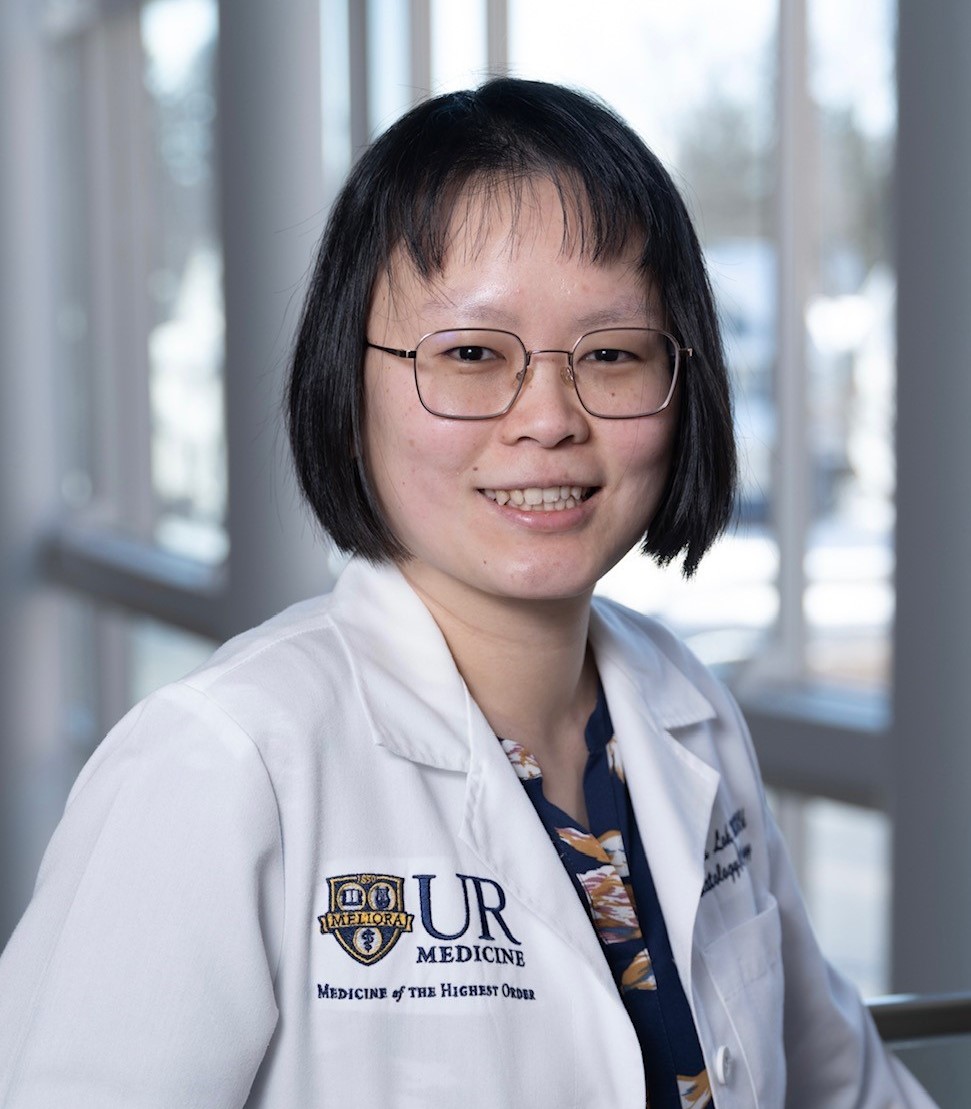
Kah Poh Loh, MBBCh BAO, MS, FACCC
Assistant Professor
Division of Hematology/Oncology, Department of Medicine
Physician Member
Tell us about your career and how you became interested in geriatrics?
I am a geriatric oncologist at the University of Rochester Medical Center. My clinical and research focus is on older adults with blood cancers, specifically myeloid cancers such as acute myeloid leukemia and myelodysplastic syndrome. I’m dual-trained as a geriatrician and a hematologist-oncologist.
My journey started back in 2012 when I did my residency at Baystate Medical Center. During that time, I was able to connect with my mentor, Maura Brennan, an active AGS member who really nurtures residents’ interest in geriatrics. Maura and the strong presence of geriatrics at my institution during my residency sparked my interest in the field. That strong presence has led me to believe that it is critical for institutions and programs to invest in geriatrics experts and staff so that we can spark an interest in younger generations to train to take care of a population we know will be increasing over the next few decades.
My interest in cancer was challenged by the complexity of treating older adults early in my residency. Initially, I didn't feel prepared to care for this population, but I quickly realized that being a good doctor meant being adept at managing these complex cases. Older adults are often the most complex patients, and mastering their care prepares you to handle almost any medical challenge. I've always been passionate about oncology, and so combining oncology with geriatrics during my residency seemed like a natural path. Combining geriatrics with oncology allows me to pursue both my passions without compromise, which is incredibly fulfilling and satisfying. This dual focus led me to Rochester for further training, where I now specialize in improving outcomes for older adults with blood cancers and I absolutely love being on this path that I have forged.
When did you join the American Geriatrics Society and why?
I joined AGS in my first year of residency in 2012 as a trainee member and then I became a full member in 2019. My residency program had a local AGS chapter, and my senior residents encouraged me to get involved. The chapter organized visits to senior living facilities, where we planned and engaged with residents in activities and games, which is something that I found very enjoyable. This early involvement with the AGS led to deeper engagement, including participating in the Residents’ Section and eventually becoming its president in my final two years of residency. My involvement has only grown from there, including leading the Cancer and Aging Special Interest Group as Chair and Vice-Chair and joining the AGS Research Committee.
What has your experience been as an AGS member? What are your favorite benefits, resources, or activities?
AGS has provided an invaluable network of colleagues in geriatric oncology. The Society offers unique opportunities to learn from geriatricians, which is something I don't find in other organizations. Attending the Annual Meetings is particularly beneficial, exposing me to new ideas and research methods that I can adapt for the cancer field. Being part of AGS committees has allowed me to contribute to symposiums and engage deeply with the community. This involvement has been a significant part of my professional development and inspiration.
What is important to you in your career now?
In the next few years, I aim to successfully transition to an independent research career, focusing on supportive care interventions for older adults with blood cancers. There's a significant gap in this area, and I hope to find resources to support these projects and implement them in clinical practice. Mentoring the next generation is also very important to me. I want to inspire and support those interested in geriatric hematology and supportive care, focusing on improving quality of life and decision-making for older patients with cancer.
Currently, I mentor several individuals interested in blood cancer and geriatric hematology. There are only a handful of us in the country doing this work, so I try to be a resource for as many people as possible. This includes giving career advice, helping with grants or papers, and sharing best practices. My clinic, which focuses on older adults with blood cancer, attracts many visitors who come to learn from our approach. I find this work to be very important as it helps disseminate valuable information and practices to a broader audience.
Do you have any advice for other AGS members?
Join AGS and take full advantage of its benefits! Attend the Annual Meeting, network with others, and consider joining committees to contribute your ideas and gain inspiration from others. The AGS community is kind, humble, and always willing to engage. If you're ready, propose ideas for symposia! Networking, especially at the Annual Meeting, can significantly broaden your professional circle which is something that has been really beneficial to me.
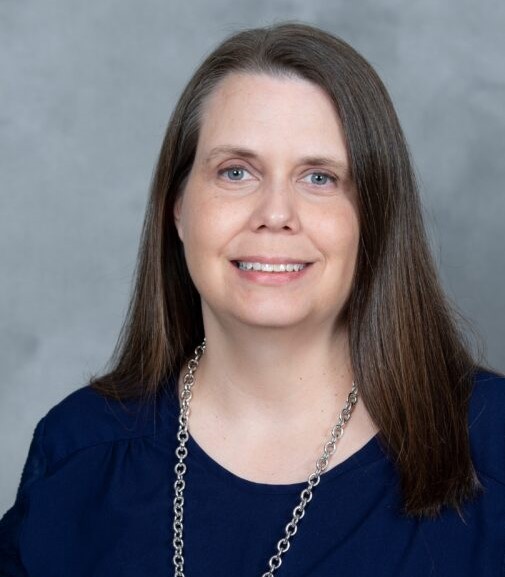
Ann Marie Nye, PharmD
Pharmacist
Campbell University
Pharmacist Member
My early interest in math and science led me to a career in pharmacy, but it was watching my parents care for their parents that attracted me to a geriatrics specialty. My parents accompanied my grandparents to doctor appointments and trips to the pharmacy, and questioned the use of various medications and treatments. Children becoming caregivers for their parents is more than just a trend—it’s a new reality that I see every day. Knowing that I help older patients who may not have someone like my parents caring for them brings me great satisfaction and pride.
I teach my students that when you care for an older adult, you can’t look at one health problem and offer a routine prescription or treatment—you must consider all of the patient’s health issues, and make sure what you’re about to recommend doesn’t cause an adverse drug reaction, discomfort, confusion, or unnecessary harm. The AGS is a place where people who share the desire to help older adults come together to improve and strengthen public policy issues, training, and delivery of quality care to patients. Attending the society’s annual meeting, and reading the weekly listserv are ways that I stay involved with the AGS. I’m proud to belong to a multidisciplinary organization that supports the collaboration of people with different skillsets and backgrounds.
The benefits of an AGS membership are extremely valuable to my work, which is why I renew my membership each year. In 2011, I became an AGS Fellow. This distinction gives me the opportunity to network with people who have made tremendous contributions to geriatrics education, clinical care, and research. The fellows are a diverse group of geriatricians, surgeons, urologists, endocrinologists, nurses, researchers, and, of course, pharmacists.
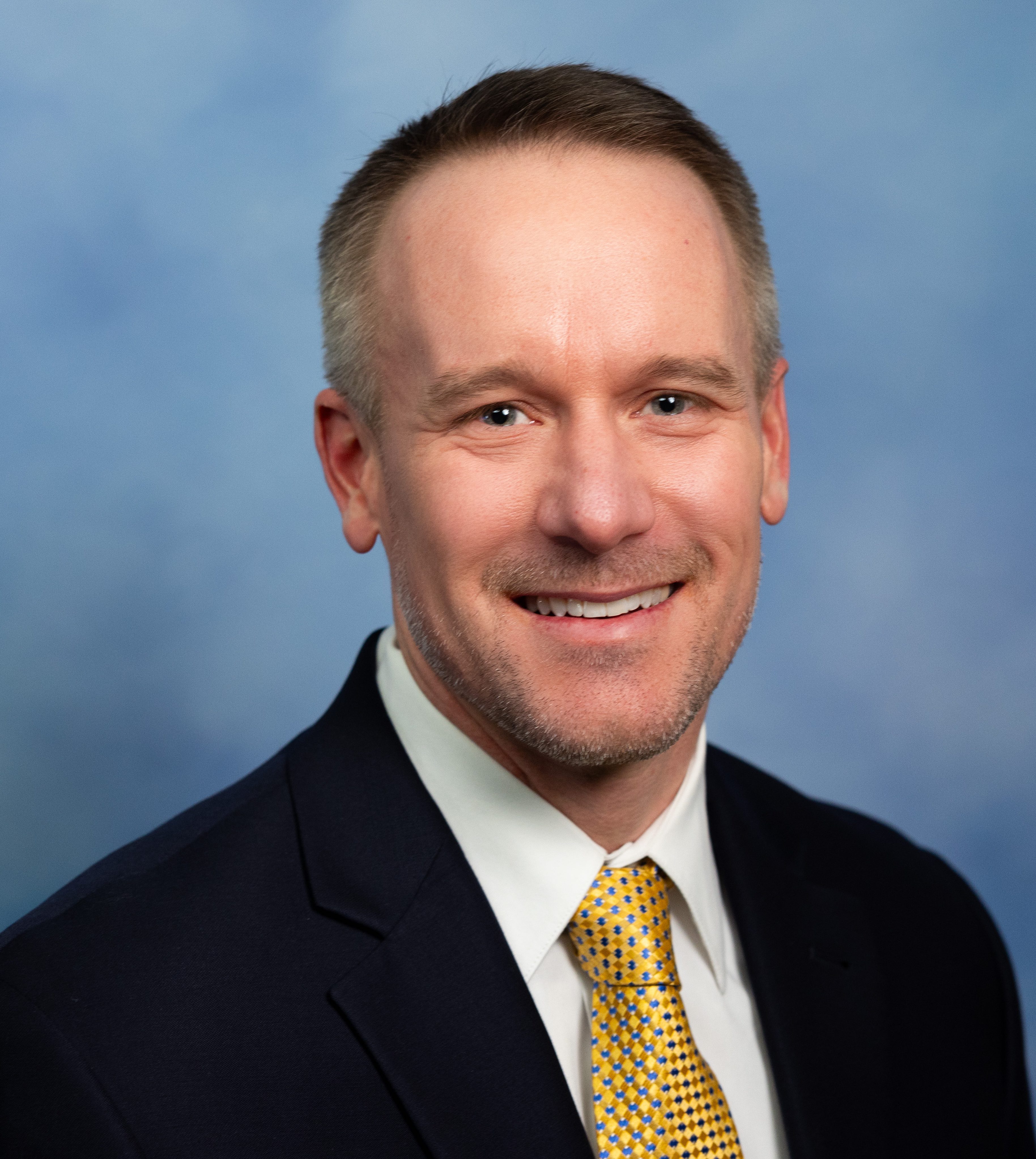
Joe Dixon, MD
Clinical Assistant Professor
University of Michigan
Physician Member
How did you become interested in geriatrics?
I am truly interested in human beings as individuals. While I always found the science of medicine fascinating, I quickly became frustrated by a system that often prioritized checking boxes over patient-centered care. During residency, I discovered that geriatrics and palliative care offered a refreshingly different approach, one that embraced the complexity of caring for older adults by interweaving their medical, cultural, socioeconomic, emotional, and spiritual needs. I was especially drawn to the holistic, person-centered philosophy that values what matters most to each individual. That perspective resonated with me, and I knew I wanted to do more. This led me to pursue a combined fellowship in geriatrics and palliative care at the University of Michigan, where I had the opportunity to deepen my understanding and commitment to this field.
What is your favorite part of working with older adults?
I consider myself a bit of an old soul, and I find real joy in being around older adults. There’s something about their presence that makes me slow down, smile more, and dig into their deeper stories - things that truly invigorate me. I love the delicate balance of managing complex medical conditions while navigating the ever-changing circumstances that come with aging.
Just this week, I had the privilege of caring for a World War II survivor who was a young woman in Italy during the Allied bombings. Her stories and experiences floored me. While I was able to help her with her medical decision making, she also gave me an invaluable gift - reminding me of the profound human connection that links the past, present, and future. I can’t even put into words how special it is to have patients who can provide me with that kind of perspective.
What are you most proud of in your career?
I have to admit, my answer to this is a little embarrassing but honestly, what makes me most proud is receiving gratitude from my patients and their families. When someone tells me, “You took so much time with me,” or “No doctor has ever sat down and had such an honest discussion with me,” it truly fills my cup. It makes me feel that the care I’m providing makes a real difference in patients’ and families’ lives.
I work with patients and families during some of the most challenging moments of their lives, helping them navigate complex decisions. I take immense pride in guiding them through these tough times in a way that aligns with their goals and values. Out of everything I’ve done in my career, it’s not just the thanks and praise that mean the most to me; it’s knowing that my work is valued, that I’m making an impact, and that I find deep fulfillment in what I do. There’s nothing I am prouder of in my career than that.
What are you working on right now?
I recently stepped into a leadership role as the Site Medical Director for Palliative Care at a local hospital, and my biggest focus right now is building up that program. I’m working hard to improve communication and collaboration across the hospital, all with the goal of providing the best possible care for vulnerable patients - including, of course, older adults.
Beyond that, I remain deeply engaged with AGS. Most recently, I was involved in developing one of the symposia at #AGS25, where I moderated a session on caring for unrepresented older adults. I am also actively involved with the AGS Ethics Committee, which is comprised of a group of my wonderful colleagues.
What advice would you share with someone who is considering geriatrics or just starting out in the field?
I have two main pieces of advice. First, if you find this work meaningful, pursue it! Many people who discover geriatrics realize it aligns with why they went into medicine in the first place: to truly care for the whole person. That doesn’t mean everyone has to complete a geriatrics fellowship, but if this field resonates with you, it’s worth exploring further.
Second, remember that your career path is more flexible than you might think. It’s easy to feel like your options are narrowing over time, but geriatrics offers so many different ways to practice. You can work in primary care, a specialty clinic, a hospital, nursing/rehab facility, or even integrate another subspecialty interest like palliative care, as I have. There’s room to shape your career in a way that aligns with your skills, interests, and the kind of impact you want to have. Don’t lose sight of the possibilities - you have more freedom than you might realize.
What is your favorite thing about the AGS or your favorite memory involving the AGS?
My favorite part of AGS has been my time on the AGS Ethics Committee. I’ve had the privilege of working alongside incredible colleagues who have welcomed me, offered opportunities, and served as both mentors and peers. It’s been an incredibly rewarding experience.
With some professional organizations, you sign up, get a few emails, and that’s it—but AGS has been different. With AGS, I’ve felt like a true member of a community, not just a subscriber.
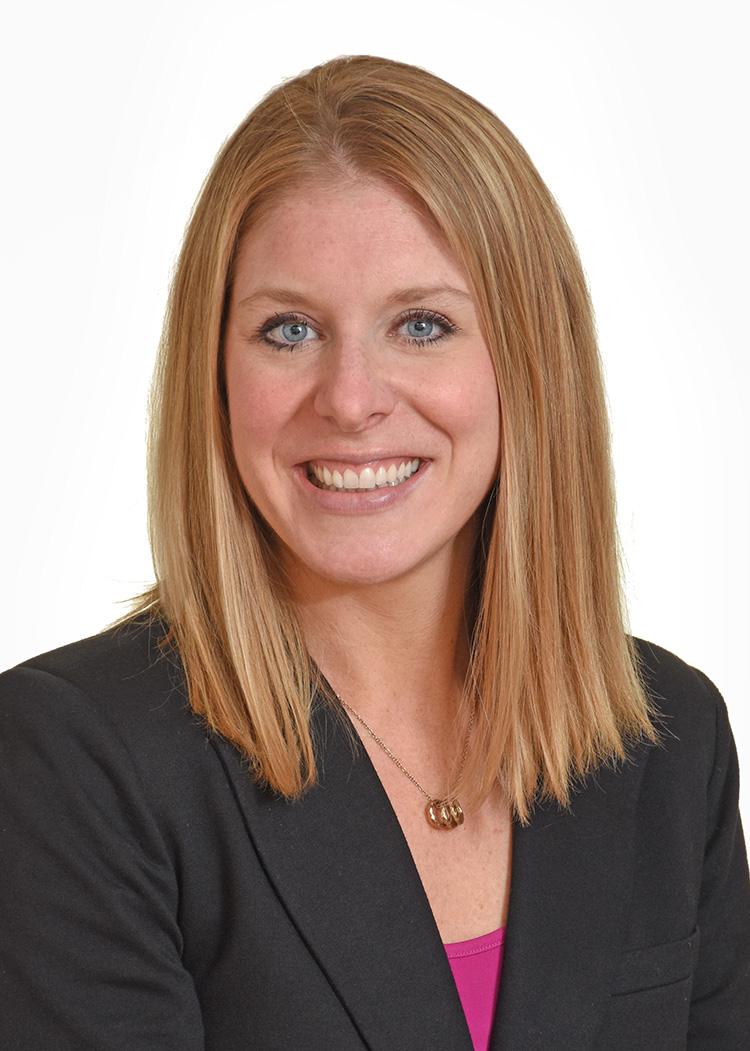
Ryan Chippendale, MD
Fellowship Director
Boston University
Physician Member
How did you become interested in geriatrics?
Growing up in Connecticut with both parents working full-time, my grandmother played a significant role as one of my primary caregivers. I remember spending every summer with my grandparents and their friends sitting outside in their yard, playing cards, and sharing stories. This early exposure to older adults, coupled with their wisdom and life experiences, naturally drew me towards them.
When I entered college and began considering career options, I became interested in medicine. Seeking clinical opportunities as a college student was challenging, but I was fortunate to secure an internship at Yale New Haven Hospital in Dr. Sharon Inouye’s delirium prevention program (now known as AGS CoCare®: HELP). As an eager 20-year-old, I had the opportunity not only to work closely with hospitalized older adults and see the complexity of their care but also to join team meetings and hear discussions about treating the whole person. I was deeply inspired by the lead geriatrician, and recall thinking to myself, “I want to be just like her.”
During medical school and residency, I explored various specialties but consistently gravitated back to geriatrics. I was fortunate to do residency at Boston Medical Center where there is a very robust and invigorating section of geriatrics AND to have had some outstanding role models, including Dr. Serena Chao and Dr. Sharon Levine, whose careers as geriatrics leaders continue to inspire me today.
What has been your experience as an AGS member? Do you have any favorite AGS benefits, resources, or activities?
I honestly can’t imagine being a geriatrician without the AGS community. Collaboration is such an integral part of our work, and AGS helps us to connect and learn from our colleagues' expertise. For example, in the online community, I often find questions I wouldn't have thought to ask myself, and though I’m more of a lurker, I absorb an incredible amount of information from my colleagues who post discussions through that forum. I start my day with the AGS Daily Digest and my morning coffee, which keeps me informed and connected.
As a fellowship program director, I encourage my fellows to use the many resources on GeriatricsCareOnline, such as the toolkits, pocketcards, and other digital publications available to members free of charge. Special Interest Groups (SIGs) have also provided me with close-knit communities and collaborators within the AGS network. Our work is so interprofessional and community-oriented, both my role at Boston Medical Center and nationally have benefited through the relationships I've built. Not to mention, I’ve met some of my best friends through the AGS community. Having a strong community and being able to rely on each other is invaluable and proved especially important during the pandemic, during which a few other program directors and I pooled resources to create "Geri-A-FLOAT" to support our fellows when they were pulled from essential training sites like nursing homes. Being able to connect with trainees all over the world and learn together has been one of the highlights of my career - and I wouldn’t have known any of those fellowship program directors so early on in my career if it wasn’t for the AGS and ADGAP.
Of course, the annual meeting is a favorite because it is so invigorating to connect with others and share what we are passionate about. I have seen some very unique places by attending the AGS Annual Scientific Meeting – I never thought I would go to Grapevine, Texas – but I did! I'm especially looking forward to the next Annual Scientific Meeting in Chicago. No matter where the Annual Meeting is held, or whether it is in-person or virtual, it’s always a fun and enriching experience.
What is important to you in your career now?
Having been mentored by some incredible geriatricians early in my career, I now find it crucial to mentor others as I reach the mid-career phase of my own journey. My goal is to expose as many trainees as possible to geriatrics, regardless of whether they ultimately become ophthalmologists, orthopedic surgeons, general internists, cardiologists, etc. Dr. Chao called it "geriatricizing"—infusing geriatrics principles into the training of future doctors and interprofessional team members across all specialties -- to ensure they are prepared to provide comprehensive care to older adults. Through Geri-A-FLOAT, my role as a program director, and my teaching roles locally and nationally, it has been a joy and pleasure to spread the love for geriatrics.
It’s incredibly meaningful when former trainees come back and tell me they remember something I taught them on home visits or in the classroom. That’s the greatest honor of my career— making a lasting impact on others.
Any advice to share with other AGS members?
My advice centers around the importance of community. AGS offers a wealth of resources and ways to connect through various platforms, committees, and interest groups. Despite our busy clinical, professional, and personal lives, immersing yourself in this community can be incredibly rewarding and enhance your experience practicing geriatrics. So, take the time to get involved and experience all that AGS has to offer. It’s a unique and enriching community that makes practicing geriatrics even more special. Clearly, I’m an AGS fangirl! And I can’t wait to see all of my friends and colleagues in Chicago for the next Annual Meeting. You won’t want to miss it!
Liron Sinvani, MD
Hospitalist
Northwell Health
Physician Member
How did you become interested in geriatrics?
I found my way into geriatrics a bit by accident. After returning from maternity leave during my third year of residency, I was unsure about specializing. I loved hospital medicine and was looking for a way to get into research, but finding the right mentorship had been a challenge. Then, the Chief of Geriatrics and Palliative Care at my health system suggested I consider geriatrics. I realized that I had a deep connection with older adults—especially through my grandparents who were always a huge part of my life. So, I met with the fellowship director, Dr. Gisele Wolf-Klein. We connected immediately. She told me, “I’m going to teach you how to do research. You are going to become the best researcher-geriatrician.”
I followed my gut and pursued geriatrics, which turned out to be the best decision I’ve made—both professionally and personally. During my first year of fellowship, I published two papers, secured my first NIH grant, and really caught the research bug. The support I’ve received from the American Geriatrics Society (AGS) and the Tideswell Emerging Leaders in Aging Program has been amazing, providing me with connections and opportunities that shaped my career.
What is your favorite part of working with older adults?
First, I love talking and connecting with older adults. There’s so much wisdom and so many life lessons that come from their experiences. Aging has many beautiful parts to it, but it also has difficult aspects – including a lot of loss, which can include the loss of loved ones, independence, or even cognition. I find a lot of meaning in being there to support both patients and their families through both the good and the bad. As a geriatric hospitalist, I often remind my colleagues that while no one wants their patients to end up in the hospital, when they do, you want someone with geriatric training—like me— caring for them.
Ultimately, I find a lot of joy from helping my patients age, live, or even die with dignity and peace.
What are you most proud of in your career?
What I’m most proud of is staying true to myself and not letting outside opinions sway me. Choosing geriatrics and staying with the health system I love has allowed me to achieve so much—from securing funding and a professorship to becoming an expert in my field—while doing it my way. I’ve been able to maintain meaningful relationships with the amazing collaborators I’ve worked with since my residency, which has been incredibly fulfilling. At the same time, I’m proud that I’ve been able to do all of this while still caring for patients in the hospital when they’re at their most vulnerable. Lastly, the relationships I’ve built through the AGS and the Tideswell program have enriched my career and been a huge part of my journey.
What are you working on right now?
Right now, I’m working on several grants – but one of my main areas of focus, and one that I am most excited about, is on dysphagia in persons with dementia. This affects so many people and has such a huge impact on quality of life. We recently had a paper on the effect of thickened liquids on hospitalized persons with dementia published in JAMA Internal Medicine, which was also featured in The New York Times. It highlighted how this universal practice may not be as evidence-based as we once thought, and we are continuing to build on that research. We are also in the process of developing a website for caregivers of persons with dysphagia as part of an NIA grant. In addition to that, we’re working on improving nursing assistants' training and education to provide better dementia care in the hospital. And a third area of focus of mine is on improving delirium screening and detection in hospital settings.
What advice would you share with someone who is considering geriatrics or just starting out in the field?
My biggest piece of advice is to not hesitate—geriatrics is an incredible career choice, and the field offers so much opportunity. Whether you’re interested in clinical care, research, education, or leadership, it is an amazing time to be a geriatrician. I often tell trainees that when you go into geriatrics, to be prepared to become a leader. As geriatric health care providers, we are uniquely poised to take on leadership roles that can truly impact the healthcare system. You’ll have the opportunity to think innovatively and improve care for older adults in meaningful ways. Geriatrics opens many doors—you can work in hospitals, outpatient settings, skilled nursing facilities, or even shape public policy. Even if you’re unsure whether it’s your ultimate path, geriatrics is a valuable investment in your professional future.
What is your favorite thing about the AGS or your favorite memory involving the AGS?
I absolutely love the AGS. Early in my career as a hospitalist, I joined several other societies, but I always found myself coming back to AGS. The AGS community is filled with incredible, supportive people—amazing physicians, innovators, and researchers—and I have really enjoyed getting to know the other members. The staff is equally remarkable—friendly, supportive, and dedicated to leading important initiatives that make a real difference. One of the things I appreciate most is how AGS elevates its members by giving them opportunities to make an impact on a national level. Whether it’s through leadership roles, research, or advocacy, AGS provides a platform to truly influence the care of older adults. We may be a relatively small society, but our collective impact on the health and well-being of older adults is tremendous.
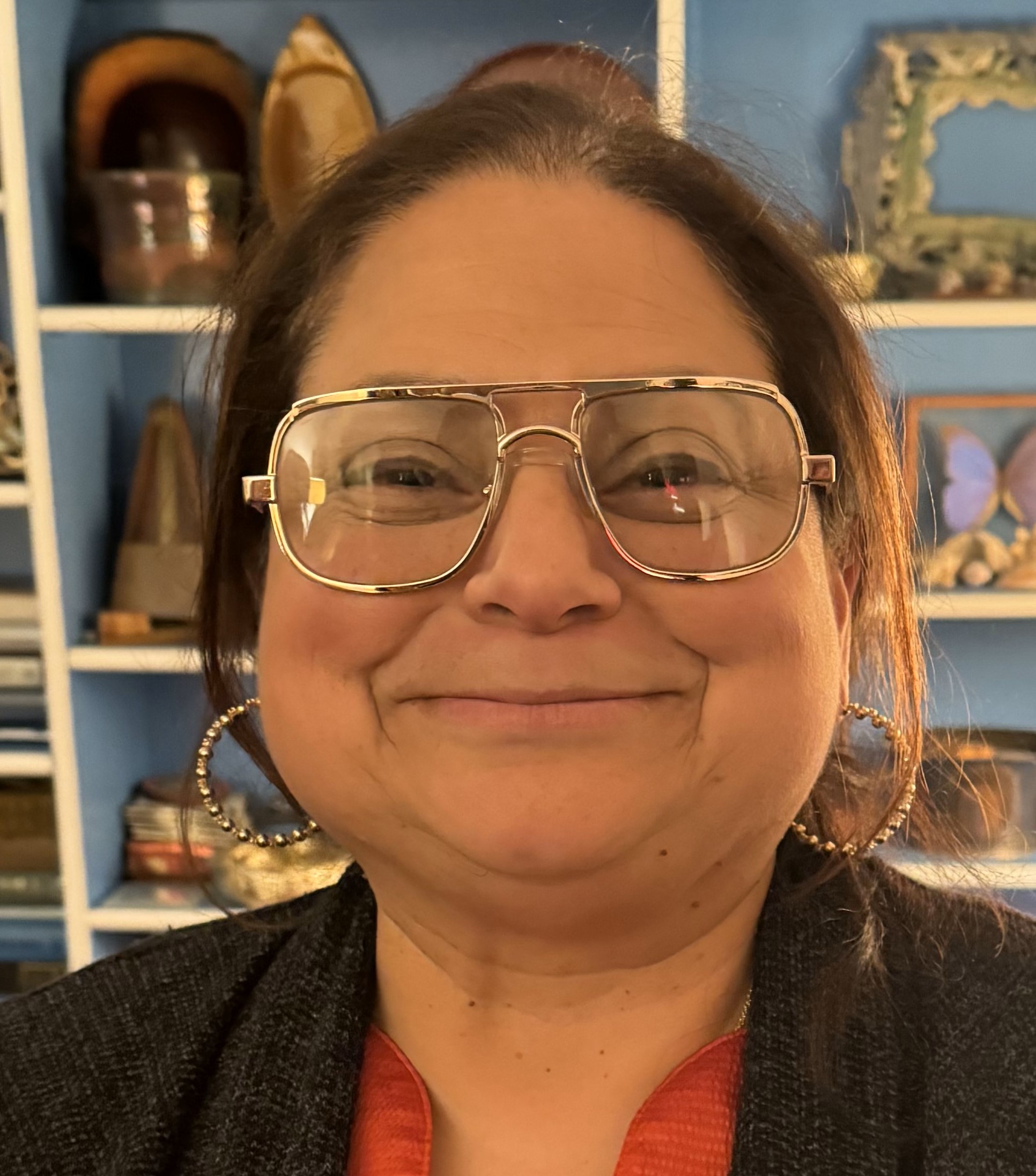
Helen Fernandez, MD, MPH
Vice Chair, Education
Ichann School of Medicine at Mount Sinai
Physician Member
How did you become interested in geriatrics?
My journey into geriatrics began with my family. Growing up in a multigenerational household, I was closely connected to my grandmother, who lived in Colombia. When she faced chronic illnesses and her first stroke, my family navigated her care from a distance, making sure she could remain at home, supported by people she loved. Watching my family work through these challenges taught me the importance of holistic, person centered care.
Later, during my internal medicine and pediatrics residency, geriatrics found me. On my first day, I worked with Dr. Rosanne Leipzig, who saw in me the makings of a geriatrician. At the time, I planned to pursue pediatrics, but my experience in the ACE unit changed everything. The way we listened deeply to patients and crafted care plans around their values reminded me of the care my family provided my grandmother. By my third year, I was committed to geriatrics.
My father, a cardiologist practicing primary care into his 80s, also inspired me. We lived above his practice, and I saw firsthand how he cared for patients as whole people. His approach made me realize that geriatrics was where I could best focus on comprehensive care.
What is your favorite part of working with older adults?
The diversity in how older adults age and approach life is my favorite thing. Their life stories and wisdom are endlessly inspiring. In my practice, where the average patient is 86, I’ve built long-term relationships, often spanning decades. These relationships remind me that my work isn’t just about addressing medical needs—it's about honoring who my patients are and advocating for what matters to them. One patient, who ran his last marathon at 96 and is now 103, exemplifies the resilience I see daily. It’s fulfilling to guide my patients through their health journeys and bring medical students along for this ride, allowing them to develop as compassionate caregivers.
What are you most proud of in your career?
I’m most proud of my work developing innovative training programs for future geriatricians. As Vice Chair of Education and previously as Program Director, I’ve worked to integrate leadership and advanced skills into geriatrics education.
A key accomplishment was launching an integrated geriatrics and palliative medicine fellowship program at Mount Sinai in 2010. This program, which blends the two fields, has grown to 12 institutions nationwide, graduating over 80 fellows who are now leaders in geriatrics and palliative medicine. This program is now a standard pathway through the American Board of Internal Medicine (ABIM) and American Board of Family Medicine (ABFM). I also was on the consortium that developed the Med-Geri pathway, which integrates geriatrics training into the residency experience. Since its inception, the Med-Geri pathway has expanded to 14 programs nationwide.
What are you working on right now?
I’m currently focused on leadership development for fellows and earlycareer professionals. In 2019, we launched a national leadership curriculum. Two years later, with AGS as a partner, we were able to tailor that curriculum to AGS fellows and early career members, providing them with tools to strengthen their communication, emotional intelligence, and resilience. To date, we’ve trained over 200 participants, and the program continues to grow. This has since evolved into a series of leadership sessions held at the AGS Annual Scientific Meeting to make these resources available to a wider audience.
This work is about preparing future geriatricians to meet the challenges of an aging population. It’s incredibly rewarding to see how these programs inspire fellows to take on leadership roles and improve care at all levels.
What advice would you share with someone who is considering geriatrics or just starting out in the field?
Geriatrics offers incredible opportunities and a bright future. There are diverse career paths, from ambulatory and inpatient care to hospital-at-home programs and research. Geriatrics is increasingly collaborating with fields like oncology, cardiology, and more, expanding the potential for cross-disciplinary work. The research arena is also rife with unanswered questions on topics surrounding care models and the needs of the "older old”. Agefriendly health systems are on the rise and geriatricians are leading the way in shaping these systems. The strength of geriatrics lies in its sense of community. It’s a field full of mentors and role models who genuinely want to see you succeed. AGS has played a vital role in supporting my career, offering platforms for innovation, collaboration, acknowledgement, and professional growth. If you’re considering geriatrics, know that you’re entering a field with abundant opportunities to collaborate, innovate, and make a real difference in the lives of older adults. There’s never been a better time to start.
What is your favorite thing about the AGS or your favorite memory involving the AGS?
The AGS has been like family to me— offering a sense of community and belonging. I’ve had the privilege of connecting with colleagues, presenting research, and forming lasting collaborations at the annual meetings. The AGS community has supported me throughout my career, providing many opportunities for growth.
One memory that stands out is how AGS came together during the pandemic. Staff and members provided critical resources to my faculty and fellows when resources were low, such as masks, thermometers, and iPads for isolated patients. When I became sick myself, they reached out to me. The care and support I received during this challenging time reinforced the sense of family that AGS fosters.
The mentorship opportunities in AGS are unmatched. Whether you’re a newcomer or seasoned professional, AGS encourages involvement and supports career development. It’s a place where you can grow your career, collaborate, and make a meaningful impact on geriatrics. In essence, AGS has not only provided me with a professional community but a home where individuals are valued, heard, and empowered to make a difference
Contact us: membership@americangeriatrics.org or 212.308.1414.
Back to Top
